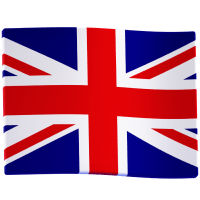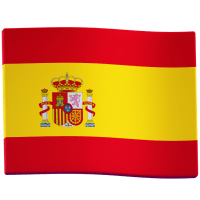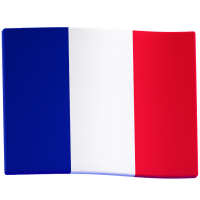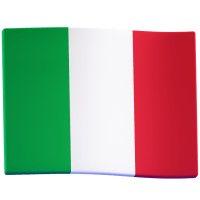French words you need to know to build your French vocabulary
Common French words
There are some words you've already know as they are used in English:
Basic French verbs

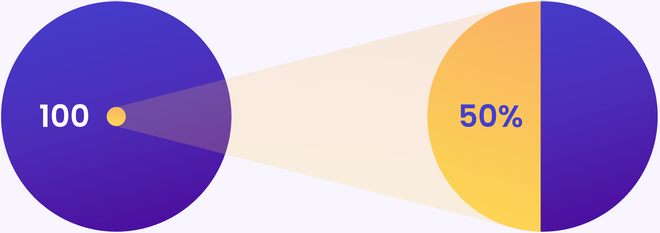
When you know the most common 100 French words
You can understand 50% of the texts written in French
Learn French Easily
Top 10 most common French words pronounced by fluent French speakers
1. Salut = Hello
Let's naturally start with "Salut" which means "Hello" in French. This is one of the most known words in French and a great way to start a conversation with someone from France. Click play below to listen to the actual pronunciation:
Salut
2. Amour = Love
Love is a universal feeling and we definitely had to talk about it here. French people have a lovely way of saying they love someone or something through the word "amour". Hear it in action here:
Amour
3. Bonheur = Happiness
When there's love, there's definitely happiness. We are all chasing "bonheur" as French-speaking people would say. Listen closely and you might just get some “bonheur” in your life today:
Bonheur
4. Chat = Cat
Let's talk pets. There are two types of people in the world: cat people and dog people. We are going to talk about cats first or how people in France would say: "chat". Listen to how it sounds like:
Chat
5. Chien = Dog
But let's not forget our lovely and loyal companions, dogs. A dog in French is "chien", a really useful word for dog lovers worldwide. Here is how you would pronounce it:
Chien
6. Sourire = Smile
Now it is time to smile. Or how someone from France would say: "sourir". Smiling makes us happy and helps us stay healthy, so that's why we all need to smile every day. Here's the French pronunciation:
Sourire
7. Français = French
Next, let’s see how people in a French-speaking country would pronounce the name of the language they are speaking:
Français
8. Oui = Yes
Yes, we have arrived at number 8 where “yes” is the subject to be discussed. French speakers say “yes” by simply saying "oui". Enhance your understanding by listening to how a person from France would pronounce it:
Oui
9. Merci = Thank you
Thank you for reading this far or should I say "Merci" as they say in French. Here's a native speaker thanking you in French:
Merci
10. Au revoir = Goodbye
No polite conversation can end without a good old goodbye or "Au revoir" how French people usually say. Now it's time for a delightful French voice to say "Au revoir" to you:
Au revoir
Basic French words for learners

French nouns for people
French nouns for places
French nouns for transportation
Food and drink nouns

French question words

Que?/Qu'est-ce que?: What? Example: Qu'est-ce que c'est? (What is it?)
Quand?: When? Example: Quand retournons-nous à la maison? (When do we return home?)
Où?: Where? Example: Où sont les voitures de location? (Where are the rental cars?)
Pourquoi?: Why? Example: Pourquoi ne restes-tu pas? (Why don't you stay?)
Comment?: How? Example: Comment ça va? (How are you?)
Combien?: How much/how many? Example: Combien ça coûte? (How much is it?)
À quelle heure?: (At) what time? Example: A quelle heure partez-vous? (What time are you leaving?)
Combien de temps?: How long? Example: Combien de temps dure la visite? (How long is the tour?)

The most beautiful 10 French words
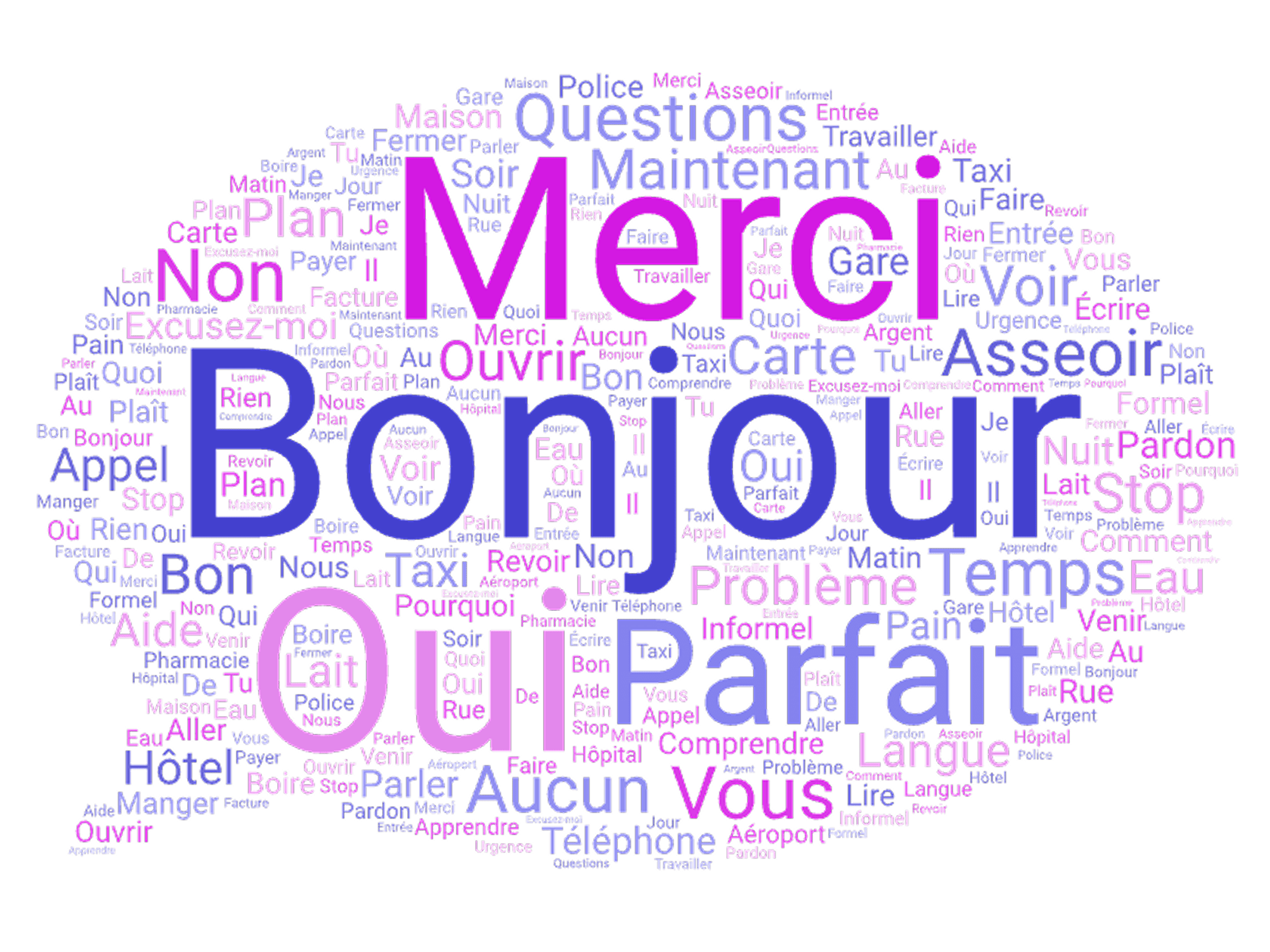
● Onirique: something that comes from a dream.
● Saperlipopette: an old-fashioned saying of “Oh my goodness!” or “Oh my stars!"".
● Coquillage: seashell
● Flâner: wander with no destination in mind
● Rêvasser: daydreaming
● Retrouvailles: a moment of incredible happiness to see that person again
● Parapluie: umbrella
● Émerveiller: the concept of “wonder” or perhaps to be amazed
● Éblouissant: dazzling
● Chéri: endearment, “mon chéri,” meaning my dear

Why learn the most common French words first?

Make French learning fun and easier
Starting with the French basics means you will begin by learning the easiest words first and gradually increase difficulty. This way you will feel great while learning and see how your language knowledge broadens.

Have basic French conversations in no time
You'll be able to speak to someone from Paris or Brussels about regular topics like weather, politics or family. This will make you confident in your French skills and eager to learn more.

Become fluent in French faster
By learning the most simple words first you are learning the smart way. Why learn the most unusual words in French when you might never use them in real life?

You improve your French vocabulary
Each new French word you learn piles up until your vocabulary builds stronger and stronger. Each lesson gets you one step closer to fluency.






